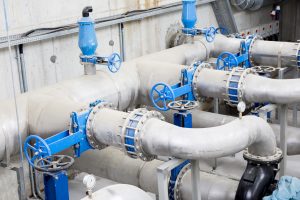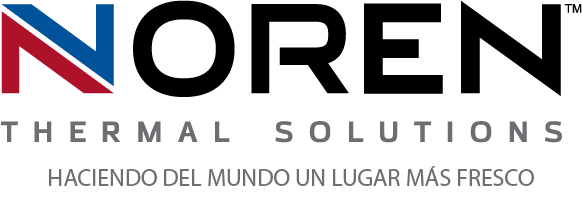 With an increased focus on cleaner and more eco-friendly practices throughout every industry, the biggest thing wastewater treatment has in common with electrical enclosures is that a wide variety of companies rely heavily on both. Like maintaining electrical enclosures, wastewater treatment processes also rely on the fast and efficient management of thermal energy, making both suitable applications for modern heat exchangers. In addition to efficiently transferring waste heat within sealed electrical enclosures, heat exchangers can also provide continuous thermal management to maintain the temperatures needed for successful wastewater treatment, all without consuming large amounts of energy.
With an increased focus on cleaner and more eco-friendly practices throughout every industry, the biggest thing wastewater treatment has in common with electrical enclosures is that a wide variety of companies rely heavily on both. Like maintaining electrical enclosures, wastewater treatment processes also rely on the fast and efficient management of thermal energy, making both suitable applications for modern heat exchangers. In addition to efficiently transferring waste heat within sealed electrical enclosures, heat exchangers can also provide continuous thermal management to maintain the temperatures needed for successful wastewater treatment, all without consuming large amounts of energy.
The Role Heat Plays in Each
For electrical control panels and other enclosures, the point of thermal management is to provide a continuous and efficient way to remove the waste heat that electronics generate before it can damage sensitive components. This can be accomplished in several ways, such as the traditional method of attaching an air conditioner unit to the enclosure. For wastewater treatment, thermal management is the opposite: the application of heat up to highly specific temperatures for prolonged periods of time. The heat is necessary for beneficial microbes to flourish and sanitize the water before it is repurposed or released back into the environment.
Heat Exchangers: The Common Denominator
One of the greatest benefits heat exchangers provide is the reduced need for energy while providing continuous thermal management. However, one of the technology’s more impactful advantages is the ability to transfer heat, rather than eliminate it. Unlike air conditioners, heat exchangers use principles like conduction, natural/forced, convection, and phase-change cooling to absorb waste heat as it is emitted. Traditionally, this heat can be dissipated in a heat sink or other area of the heat exchanger and the fluid recirculated back to continue collecting and transferring more heat. However, in many cases, heat exchangers can be utilized to transfer excess waste heat to be used for wastewater treatment processes, ensuring optimal efficiency and further reducing a company’s reliance on non-renewable energy.
To learn more about how heat exchangers streamline electrical thermal management and wastewater treatment, call Noren Thermal, Inc. in Taylor, TX, at 866-936-6736.







